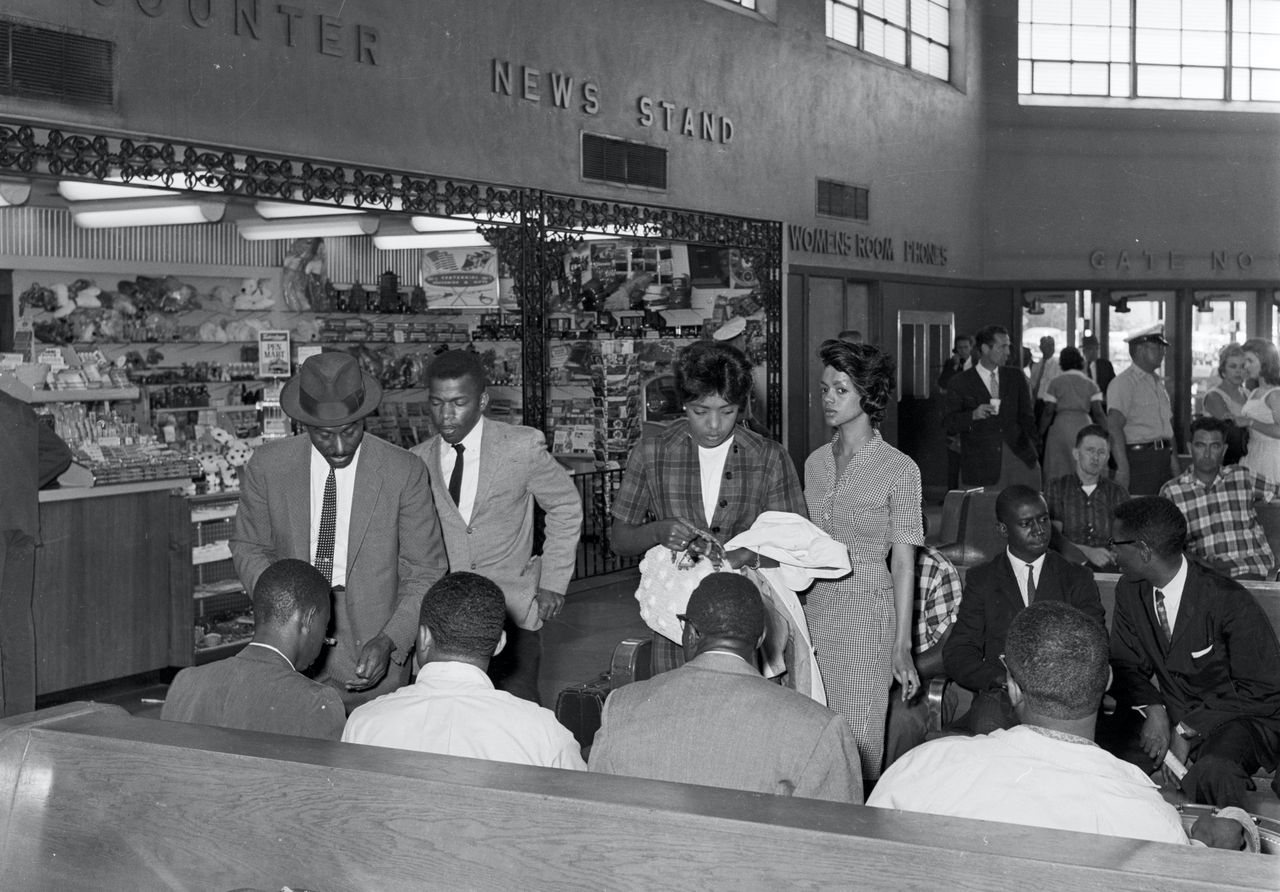Birmingham Freedom Rider Catherine Burks-Brooks dies at 83
“Mr. Bull” is what she called him. It’s what Catherine Burks-Brooks called Eugene (Bull) Connor on the morning of May 18, 1961.
The segregationist Birmingham Police Commissioner had driven the 21-year-old Birmingham native and nine other young civil rights activists to the Alabama border after the group, all college students in Nashville, ventured to Birmingham to support the Freedom Riders, who encountered violence in Anniston in Birmingham as they challenged segregation on interstate buses throughout the South.
Connor wasn’t having it. He forced the group to Ardmore near the state line and dumped them—at what turned out not to be a bus station but an abandoned warehouse.
Burks-Brooks wasn’t having it.
“We’ll see you back in Birmingham at high noon,” she shouted at Connor, “Mr. Bull.”
Burks-Brooks, who later joined the rides and was once arrested in Jackson, Mississippi, and held for 39 days in Parchman State Prison, died Monday at her home, the family confirmed. She was 83 years old.
In a bio (attached below) written by her family, they recalled how Burks-Brooks exhibited the spirit of defiance early in life: “From a very young age, she developed a sharp tongue, a critical eye, and a strong sense of justice. She used these tools to speak out against the injustices of racism and segregation. Her first acts of protest occurred when she was only 11 years old while walking down the Birmingham sidewalks. When white pedestrians approached from the opposite direction, Catherine always refused to step out into the street to allow them to pass, defying both local customs and city laws.”
During an interview with AL.com in 2011, Burks-Brooks, who was born near Selma, grew up in Center Point and attended Tennessee A&I (now Tennessee State), shared her efforts with the riders, which comprised Blacks and whites, as she often did with students. Their excursions through Georgia, Alabama, Mississippi, Louisiana, and other states still clutching to segregation were a vital catalyst in the movement for civil rights and equal treatment under the law.
“Young people need to know their history and that people could not get on a bus and sit where they wanted to sit,” she said. “They should know that blacks and whites put their lives on the line to change that.”
Burks-Brooks and her young friends, on that day in May 1961, returned to Birmingham, of course. They joined other supporters at the Greyhound station who also arrived to back the original 13 riders who left from Washington, D.C. on May 4. They found violence on May 14 in Rick Hill, SC (Future U.S. Congressman John Lewis, then a seminary student, was among three riders attacked trying to enter a white-only waiting area).
On May 14, about 200 whites swarmed a Greyhound in Anniston, shot out the tires and firebombed it. Riders were severely beaten before being transported to Birmingham, where they met a Trailways bus of riders. There, the students were attacked again.
That’s what sparked Burks-Brooks and her friends to leave Nashville.
“After we got word about the beatings in Birmingham and bus burning near Anniston, we decided that we would take up the freedom rides,” she said in 2011. “We knew it had to be done and that there was a strong possibility we could get killed. But when you accept that idea, you lose your fear.”
Burks-Brooks joined the riders from Birmingham to Montgomery (Greyhound could not “find” a driver until President John F. Kennedy threatened to send an Army soldier to drive it), where they encountered more attacks. Rev. Martin Luther King flew into the city and was among those surrounded by a mob at First Baptist Church.
“After other activists had come into Montgomery to supplement the riders I decided I would go back to Tennessee State to take my final exams at my father’s request,” said Burks-Brooks in 2011.
“Though she escaped the worst of the violence in Montgomery,” the family wrote, “Catherine still faced dire consequences for taking a stand against injustice. Though a senior on the cusp of graduation, she was expelled from Tennessee A&I for taking part in an act of protest.”
Undeterred, she rejoined the riders on a bus from Nashville to Jackson, where she was arrested and imprisoned. The charge? “Breach of peace.”
“After leaving Mississippi, Catherine worked as a social worker and an entrepreneur before moving to the Bahamas in the 1970s,” the family says. “In 1979, she returned to Birmingham, where she served for many years as a substitute teacher in Birmingham City Schools. In 2008, Tennessee State University awarded her the other expelled Freedom Riders an honorary doctorate.”
